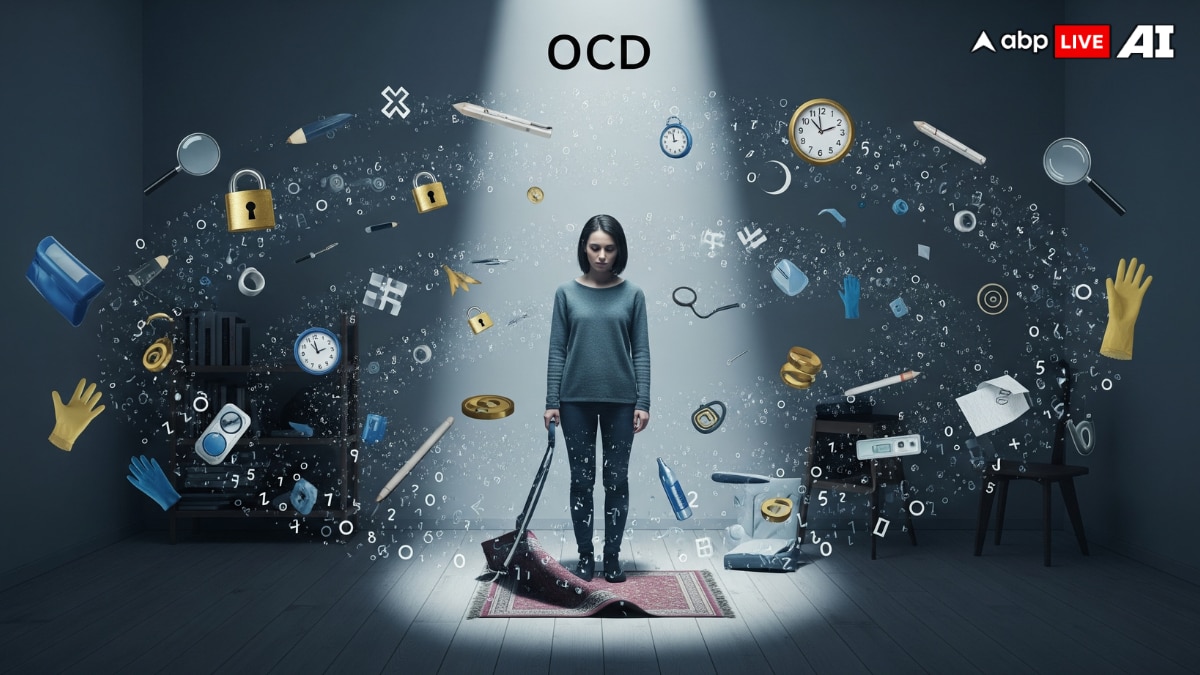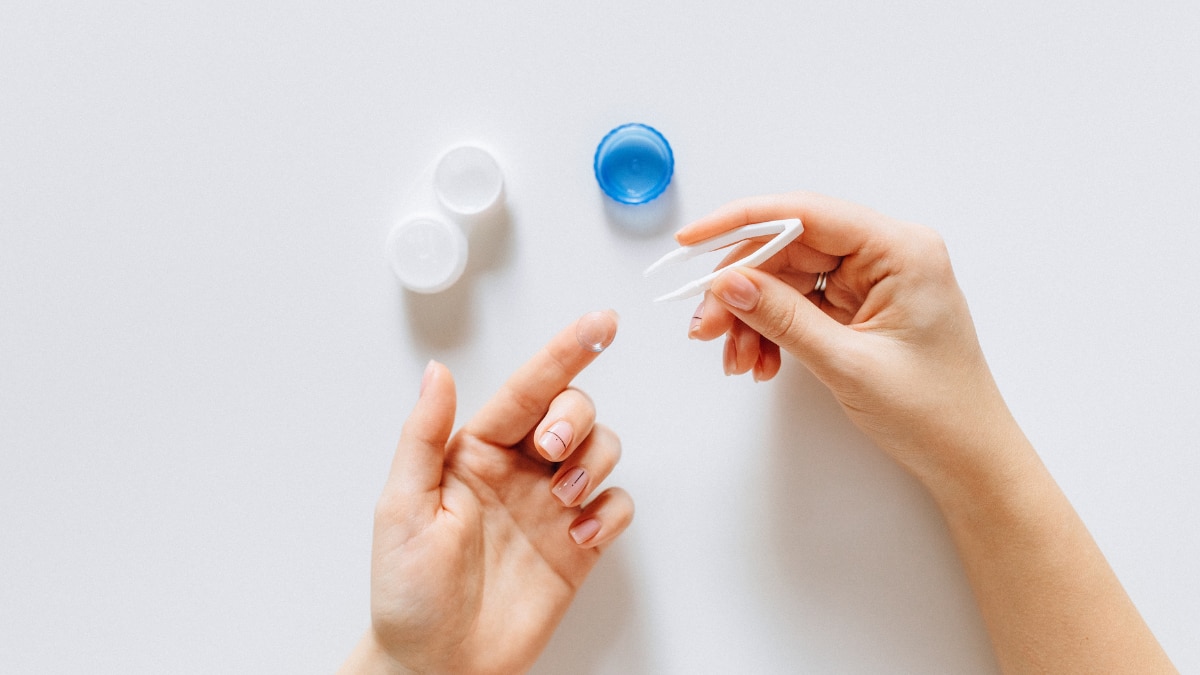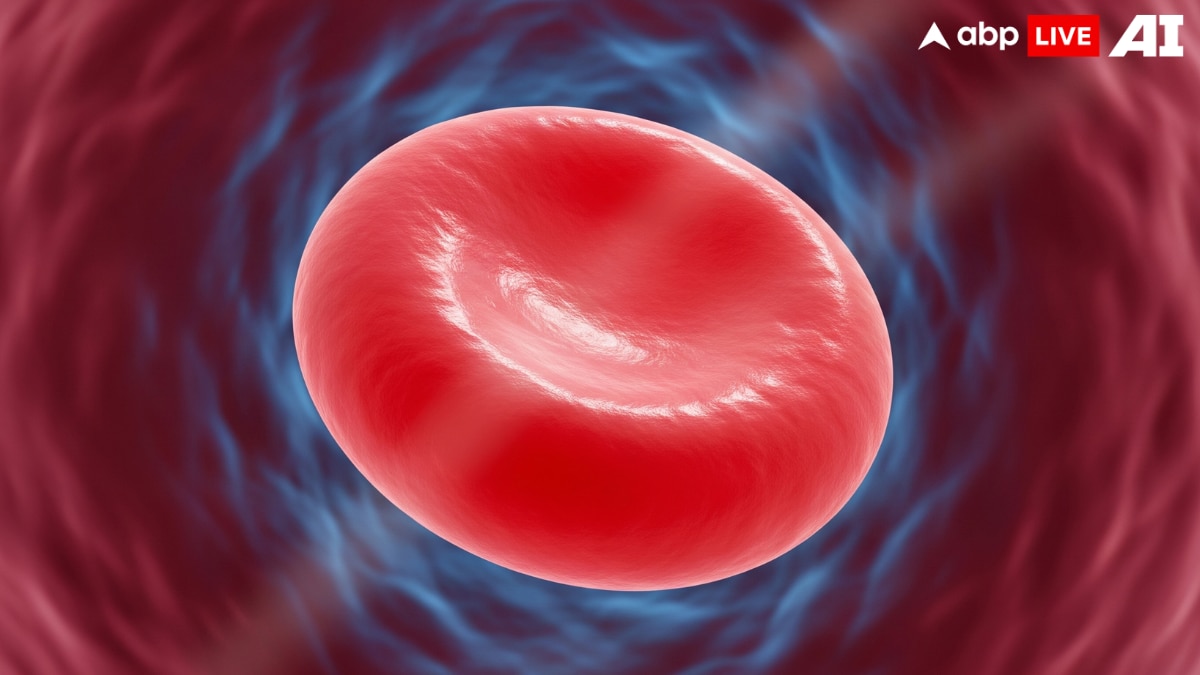Mental health awareness takes a powerful step forward when public figures speak candidly about their struggles. Several Indian celebrities have courageously spoken about their own or their family members' mental health struggles, helping to destigmatise these conversations in India. Whether it is Randeep Hooda or Deepika Padukone speaking about depression-related battles, or Shraddha Kapoor and Anushka Sharma talking about how anxiety can plague the mind, the list is long.
These open talks by Indian celebrities are immensely important not because celebrities are perfect role models, but because their visibility helps break long-standing stigma around mental health in Indian society. Their openness chips away at stigma and inspires others to speak out.
In the latest such instance, it is Jenna Ortega, the breakout Netflix star of Wednesday, who joins the band of these braves who helped destigmatise mental health matters. In a recent interview on Heart Evening Show, Jenna opened up about living with obsessive-compulsive disorder (OCD), a move that could help many readers recognise their own experiences. Here's what she said, and what mental health experts want us to know.
When asked about her evening routine, Ortega surprised the host and viewers by saying, “I have pretty intense OCD,” adding, “Repetitive thoughts and counting everything multiple times and having to do the same action over and over.” Her words carried the weight of lived experience — routine not as ritual, but as necessity.
She went on, "Sometimes my nights consist of just being really exhausted and going up and down the stairs six times because that's what I think I need to do to make sure no one breaks into my home." The comment distilled how compulsions, born from magical thinking, can override rest even when every rational indicator says there's no danger.
In this insightful conversation, leading psychiatrist Dr Muktesh Daund, Director & Consultant Psychiatrist at NIMS Hospital, Nashik, sheds light on the complex issue of OCD: its diagnosis and treatment. ABP Live also spoke to Shruti Padhye, Senior Psychologist at Mpower, Aditya Birla Education Trust. Here are excerpts from what they shared:
ABP Live: What is OCD, and how does it differ from normal worrying or tidiness?
Dr Muktesh Daund: Obsessive-Compulsive Disorder is the fourth most common psychiatric illness. When anyone spends excessive time in rituals of cleaning or keeping things in order, it affects their daily routine. We have to take it seriously. The same goes for indecisiveness; it's not worry but ambivalence. OCD isn't about habits like nail-biting or having negative thoughts. It involves a vicious cycle where obsessions trigger compulsions that temporarily reduce anxiety but ultimately reinforce the obsessions.
Shruti Padhye: Obsessive-Compulsive Disorder (OCD) is a mental health condition marked by intrusive, distressing thoughts (obsessions) and repetitive behaviours or mental acts (compulsions) performed to reduce the anxiety they cause. Unlike everyday worries or preferences for cleanliness, OCD is time-consuming and causes significant distress or interference in daily functioning. From a psychodynamic lens, OCD stems from unconscious conflicts, often involving guilt, control, or unacceptable thoughts, which are managed through compulsions. Unlike ordinary concerns, these defences are rigid, repetitive, and driven by internal distress rather than external necessity.
ABP Live: Who is most likely to develop OCD? Are certain personalities, ages, or life stresses more vulnerable?
Dr Muktesh Daund: OCD generally develops in the late teens or early adulthood, which is around 18 to 25 years of age. Genetics play a significant role in the development of OCD. Though the exact mechanism is unknown, 50% of people with close relatives suffering from the disorder are at risk. If one sibling has OCD, others have a 25% chance of developing it. Childhood trauma, life stress, and other medical conditions like anxiety and depression increase the chances of OCD.
Shruti Padhye: OCD can affect people from any demographic, but it most often begins during adolescence or young adulthood. People who have perfectionistic tendencies, are high in anxiety sensitivity, or have a family history of OCD or related disorders may be at higher risk. Incidents of trauma and other stressful events can activate or exacerbate symptoms in an at-risk individual.
ABP Live: How can someone spot possible OCD in themselves or a loved one? What are common signs or behaviours?
Dr Muktesh Daund: The earlier the diagnosis, the better the prognosis. People suffering from OCD often take seven years to reach a psychiatrist. It's often called a secretive disorder because people suffering from it tend to hide its symptoms. Common symptoms are excessive washing, arranging things in order, repetitive checking actions, and fear that something bad will happen. Often-missed symptoms are blocking compulsions, meaning people chant some mantra or pray to God to reduce anxiety. These slow their day-to-day activities and are often misunderstood as laziness.
Shruti Padhye: Repetitive behaviours such as excessive washing of hands, checking locks, or mental rituals such as counting, sometimes associated with a surge of anxiety if the behaviours are not carried out, might be signs. The most important indicator is that the individual understands the thoughts or behaviours are unreasonable but feels incapable of resisting or stopping them.
ABP Live: What are the most effective treatments for OCD, and how quickly can one expect improvement?
Dr Muktesh Daund: Effective treatments include pharmacotherapy and psychotherapy. For mild OCD, which we decide on the Yale-Brown Obsessive-Compulsive Disorder Scale, exposure and response prevention is the most effective treatment. For moderate and severe OCD, medications are the mainstay. Fluoxetine and Fluvoxamine are first-line medicines which belong to the SSRI class of medicine.
The average time for initiating symptom relief is variable, but on average people need four to six weeks for good clinical recovery. Medicines also provide quick relief for associated symptoms like anxiety and depression. Depression is present in almost 70% of OCD patients. So yes, medicines improve the overall quality of life of patients suffering from OCD.
Shruti Padhye: Cognitive Behavioural Therapy (CBT), particularly Exposure and Response Prevention (ERP), and in some instances SSRIs (a group of antidepressants), are the gold-standard treatments. Some people report feeling relief after a few weeks, while for others, there is a longer treatment period. It depends on the severity of their obsessive-compulsive symptoms and how consistently they engage in treatment.
ABP Live: Is it true that OCD only affects daily life when severe, or can milder forms still be disruptive?
Dr Muktesh Daund: To understand how OCD affects day-to-day life, let's look a bit deeper. Obsessions mean any repetitive, unwanted thoughts, images, or impulses. To avoid discomfort caused by obsessions, people develop certain rituals. When these become excessive, it becomes a disorder. The suffering of the individual depends on the symptoms. For example, a mother having aggressive thoughts toward her own child suffers more. Similarly, a priest having blasphemous thoughts will suffer more because they face these disturbing situations daily. So yes, milder forms can also be very disruptive for some.
Shruti Padhye: Even mild OCD can be disruptive when it gets in the way of focus, relationships, and emotional health. What determines that impact is not always severity, but rather the amount of time and mental “real estate” that obsessions and compulsions occupy in the individual's life.
One thing that emerges from these instances is that mental health topics should not be held hostage to taboos. Like any other physical manifestation of health issues, mental health should also be discussed without bracketing a person in any unkind manner. Jenna Ortega's honesty — a simple recounting of exhaustion, stairs, and counting — is a powerful reminder that health is more than the physical, and recovery starts with recognition.
Kirti Pandey is a senior independent journalist.
[Disclaimer: The information provided in the article, including treatment suggestions shared by doctors, is intended for general informational purposes only. It is not a substitute for professional medical advice, diagnosis, or treatment. Always seek the advice of your physician or other qualified healthcare provider with any questions you may have regarding a medical condition.]









